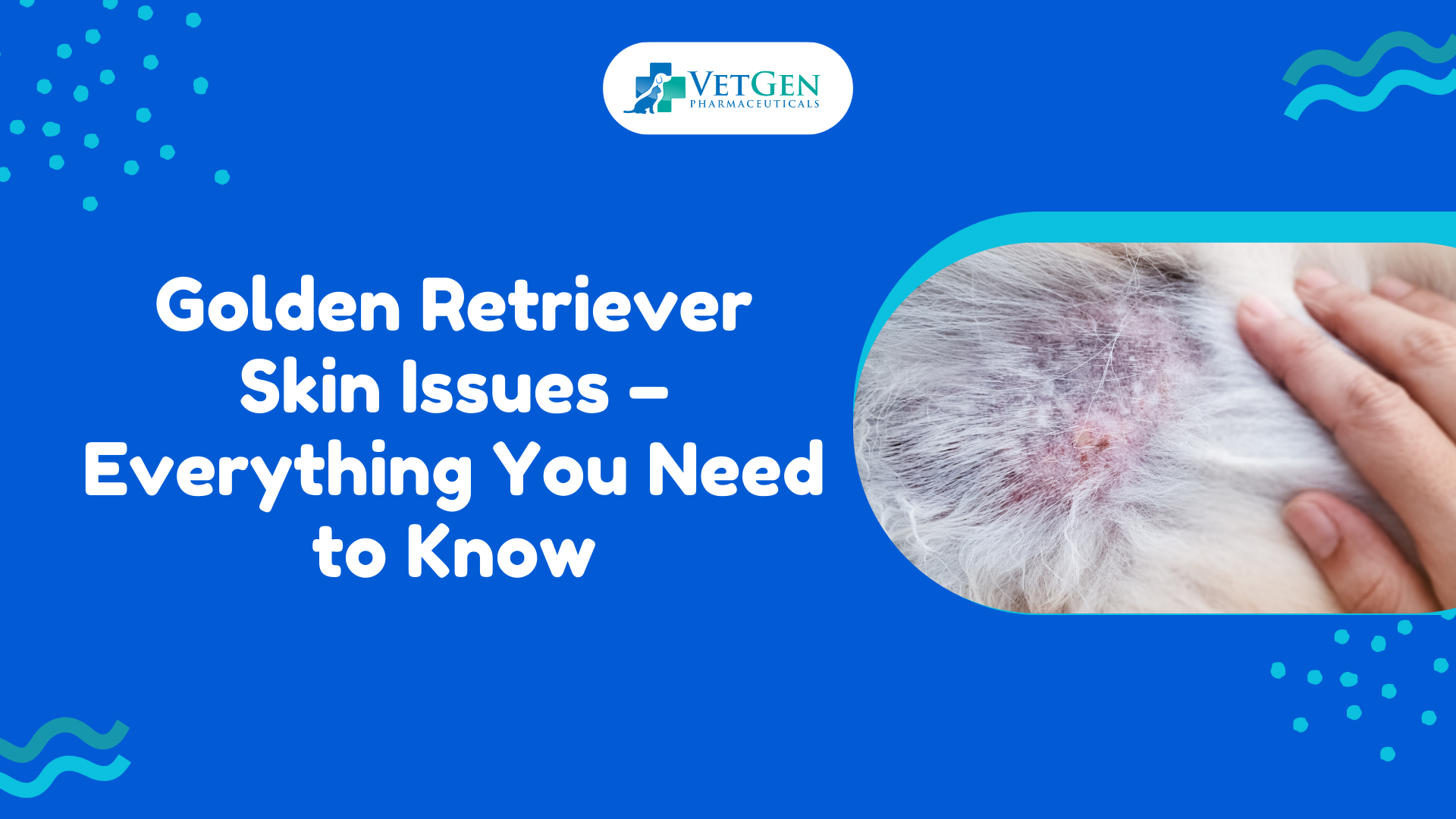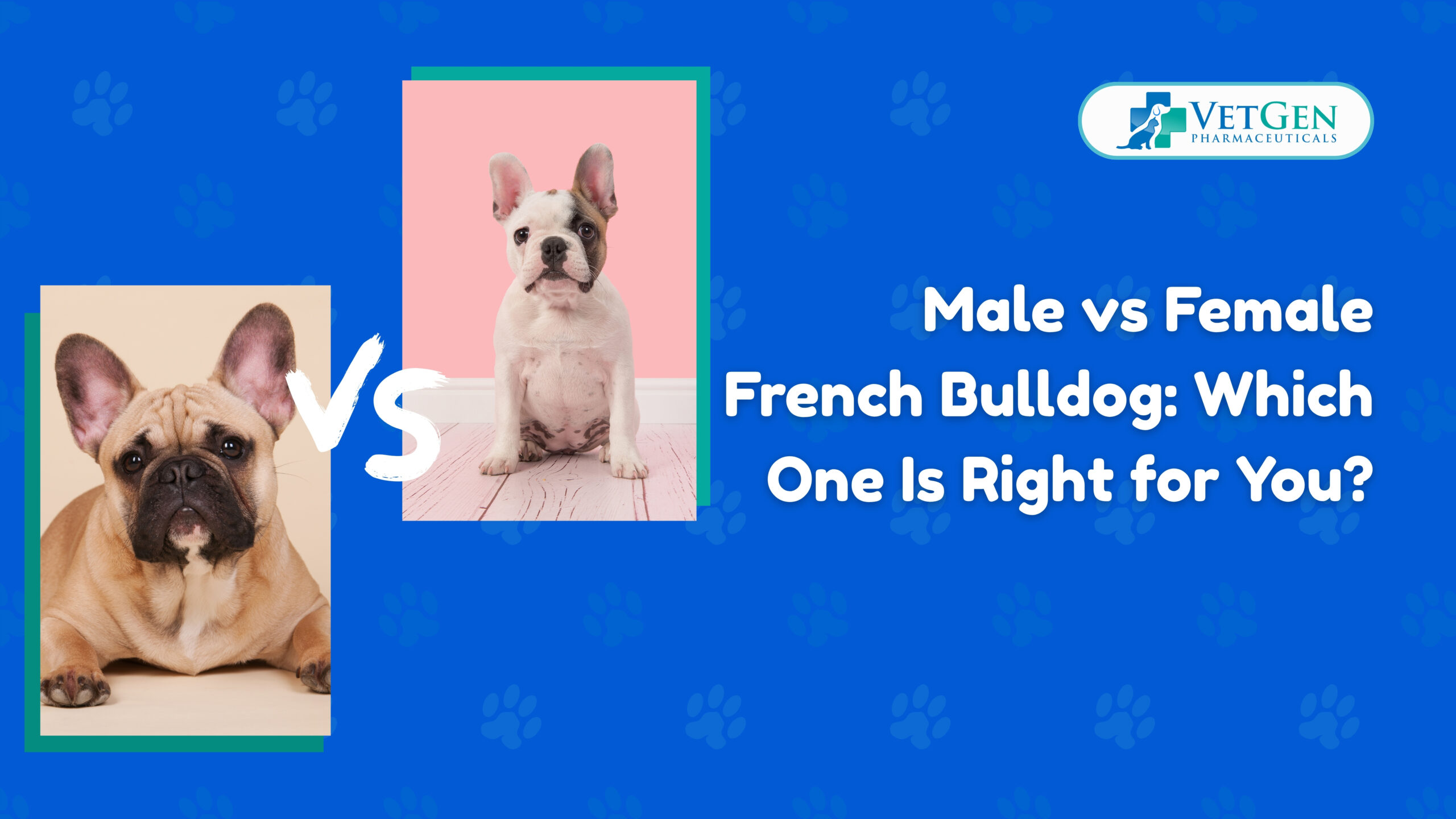Golden retrievers are extremely intelligent, loyal, and sociable dogs. They are the quintessential family dog. However, owning one means you will have to also deal with allergies and food intolerances. This guide provides a brief run-down on what to expect as a new owner of a golden retriever.
Golden Retrievers Are Prone to Skin Issues
Golden retrievers are known to have a myriad of skin issues that are often noticeable when your find them aggressively scratching.
However, some skin issues can be hard to notice as they tend to be covered by their dense undercoat or thick fur. In fact, it is this thick fur that stores and retains heat and humidity so close to the skin that consequently results in skin issues.
Mainly, they are prone to environmental allergies and atopic dermatitis. Like several other breeds, some stuff in the environment, such as tree pollen, dust, and even certain cleaning products are well-known causes for these allergies.
Most Common Golden Retrievers Skin Allergies
Golden retrievers are quite susceptible to skin allergies and allergen agents. Most common of all is atopic dermatitis. This is a condition that is predominantly genetic in a significant number of golden retrievers. It causes their bodies to become highly inflamed and sensitive to dust particles, grass, tree pollen as well as certain cleaning products.
The other types of allergens that can affect some golden retrievers include certain dog supplements for itchy skin, some medications, mold, food ingredients and fleas.
Corn and wheat products have also been found to cause allergic reactions in some golden retrievers – hence the prevalence of insect-based dog food these days.
How Do You Treat a Golden Retriever’s Skin Problem?
If the skin problem of your golden retriever is a result of food allergies, it is recommended that you use the same approach you would use for humans. What this means is that you should try putting your dog on an elimination diet.
Over a couple of weeks, switch out your dog’s protein type and closely monitor how the situation unfolds over a couple of months. Should the symptoms be alleviated during this period, then it is certain that your dog was reacting to a food allergy.
In other cases, a vet may recommend allergen-specific immunotherapy – which is basically a method that involves introducing small doses of the allergen to your golden retriever regularly until their sensitivity to the allergen becomes negligible.
Hot spots, which often presents as swollen and inflamed skin, can be treated by putting your golden retriever on a course of dog supplements for itchy skin, anti-microbial hot spot spray, medicated shampoo, or hot spot anti-microbial hydrogel. All of these are designed to provide a relieving effect.
Why Is My Golden Retriever Always Itching?
Itching in dogs such as golden retrievers can be caused by many things. The most common culprits, however, are fleas, food allergies, environmental allergies, dry skin, mites, or an ear infection.
Once you notice that your dog is itching a little more than usual, you need to observe first to try and isolate the cause before rushing to provide treatment. You may make matters worse by providing the wrong treatment.
If home-based remedies are not providing any tangible relief, be sure to see a professional vet for further guidance.
What Do You Feed a Golden Retriever with Allergies?
As a general practice, any dog that suffers from food allergies should be put on either a limited ingredient food course or a hypoallergenic food course.
A limited ingredient food course is basically food that has few components. The idea here is to make it easy to isolate what is causing the allergy.
Thanks to advancements in industry today, these foods do not have to be bland. You have an array of flavored limited ingredient foods that can be enjoyed by your golden retriever.
A hypoallergenic food course is one that incorporates certain types of unique proteins that are hard to be recognized by your golden retriever’s antibodies as antigens.
This means that an immune reaction will not be initiated upon your dog’s ingestion of these proteins. One example of such a protein is hydrolyzed soy. If you are unsure of which hypoallergenic foods or proteins to use, consult a professional vet.
Finally, you may also incorporate dog supplements for itchy skin in your golden retriever’s daily diet.
Are Most Golden Retrievers Allergic to Chicken?
Some studies have shown that certain dog breeds are more susceptible to chicken allergies and golden retrievers are among them. It is, however, hard to put a concrete figure on the proportion of golden retrievers that are allergic to chicken.
What we do know is that it tends to be genetic; therefore, breeding dogs that exhibit some chicken intolerance will likely spread that allergy to subsequent generations.
The symptoms of chicken allergy in golden retrievers, like many other dog breeds, presents as a lot of itching and scratching. In a few cases, chicken allergies have been found to be severe if left untreated for a long time.
How Often Should You Bathe a Golden Retriever?
Golden retrievers are considered to be water dogs. They have a thick fur and their skin secretes natural oils that are water-repellant. The question of how often you should bathe your golden retriever depends on lifestyle factors.
One that stays indoors a lot gathers dirt less than then one prone to playing outside or in algae-filled ponds. You should also keep in mind that washing your dog too much can be just as bad as not washing at all. This is because excessive washing will strip away the natural oils that provide a protective coating to its fur.
Coconut Oil As a Relief to Skin Itch
Generally, coconut oil is safe to be applied on a dog’s skin. Studies have shown that it has anti-bacterial, anti-viral, anti-inflammatory, and anti-odor properties. Some vets suggest using coconut oil on small cuts and wounds to help prevent your dog from getting infections.
How To Stop My Golden Retriever from Having Allergies?
The best way to prevent allergies in your golden retriever is by making sure that your environment is clean and free of dust mites and pollen. You should also keep your dog’s diet to foods that have minimal ingredients and free of components that are well known to trigger immune reactions.
Also, incorporating dog supplements for itchy skin in their diet has been found to help. We suggest consulting a professional vet guidance if you are having trouble with dog allergies.






